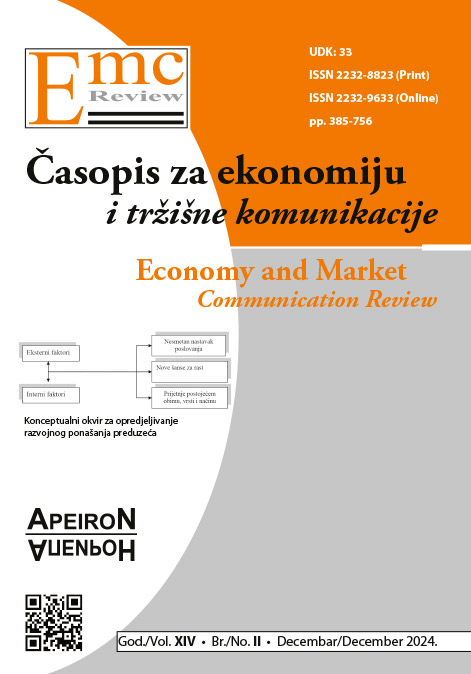MEASURING TRUST IN SHARING ECONOMY AND EVALUATING THE EFFECT OF TRUST ON SHARING INTENTION ACROSS TWO CULTURES
DOI:
https://doi.org/10.7251/EMC2402496AKeywords:
Sharing Economy, Trust, Culture, Intention, RentingAbstract
The purpose of this study was to examine the influence of the trust of product/service providers in sharing economy platforms on renting intention, the potential mediating effect of consumer trust, and the moderating role of culture on renting intention. The authors collected survey data from 823 respondents in total, including 416 Turkish and 407 Russian individuals. To test the relationships among study variables, the authors analyzed the data using structural equation modeling. The results of the analyses showed that the perceived personal safety system and perceived review system have an effect on trust in the sharing platform, but the perceived property security system has no effect on trust in the sharing platform. In addition, the trust in the sharing platform mediated the effect of perceived personal safety system and perceived online review system on trust in consumers, but it did not mediate the effect of perceived property safety system on trust in consumers. The results indicated that trust in the sharing platform affects renting intention, but trust in consumers does not affect sharing intention. Finally, the results revealed that culture does not have a moderating role in the relationship between trust in the sharing platform and trust in consumers. Platform operators should improve their trust mechanisms. Marketers should consider trust as one of the main issues when determining their strategies as it can provide competitive advantage. In addition, policymakers should also produce policies that incentivize platforms in activities that increase trust. The article provides important theoretical and practical insights into understanding and improving the trust affecting the renting intention in the context of the sharing economy.
